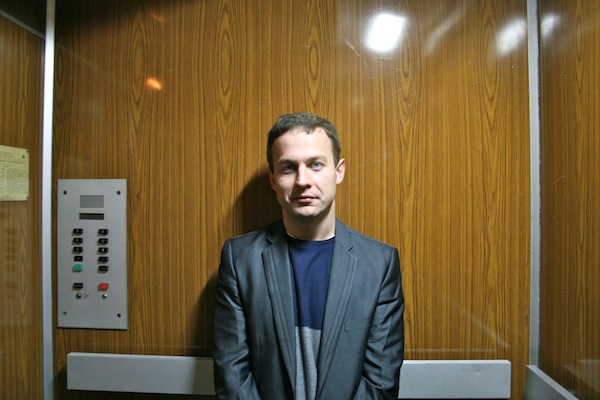I CAME TO THE EASTERN UKRAINIAN CITY of Donetsk, the industrial center of the country, to meet Oleksiy (Alex) Matsuka, a 28-year-old independent journalist. It was a cold and gray morning. Women plunged their chins into the tops of their padded coats; men tugged at the front of their newsboy caps to shield their faces from the wind.
Across the street, a loose corner of a billboard ad displaying two candidates from the Party of Regions — the current ruling party — flapped in the breeze. Some of the party’s members have been the subjects of Alex’s past stories, stories that have led to him being followed and threatened. On the other side of the billboard was another ad, this one with the party’s leader and Ukraine’s President, Viktor Yanukovych, posed in front of a blue and yellow background — the country’s national colors. Next to him were the words, “One Ukraine. One story.”
